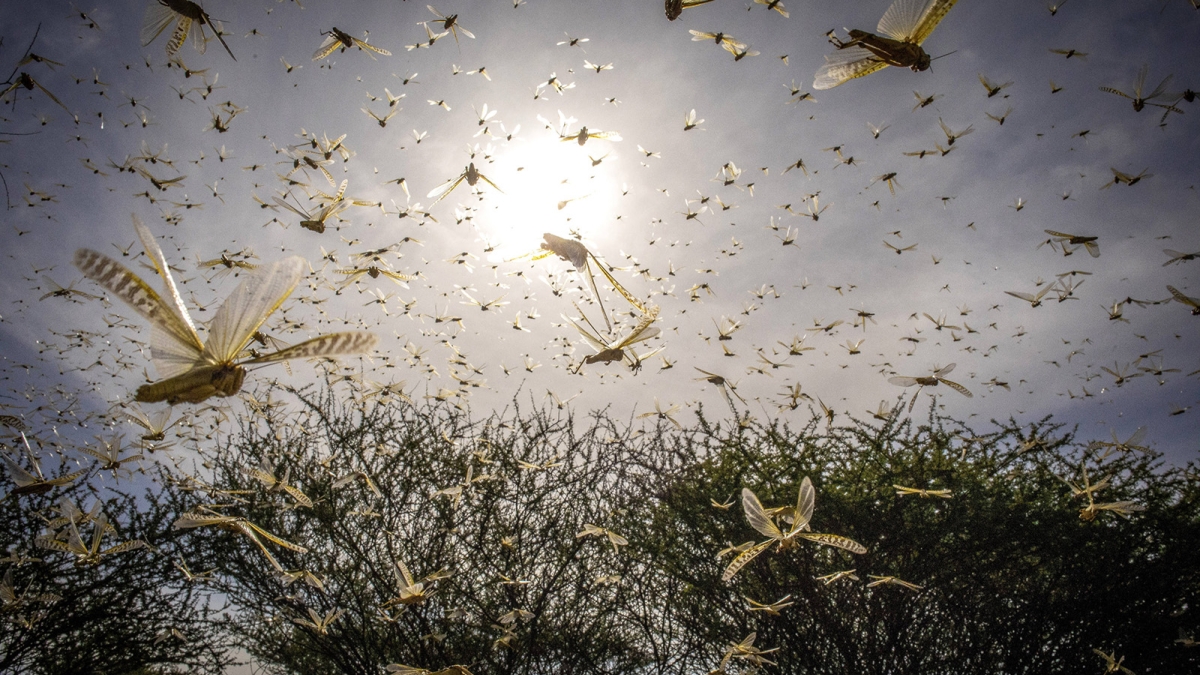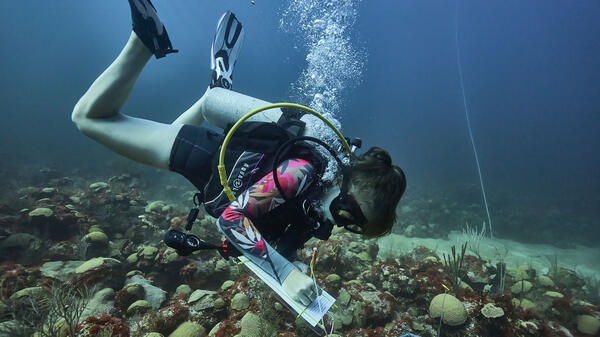New research shows transdisciplinary approach is needed for successful locust management

Photo courtesy FAO/Sven Torfinn
Locusts — both a biological wonder and a severe threat to farmer livelihoods — these migratory, herbivorous insects have a long history of cohabiting with humans.
Managing these creatures is a crucial element of advancing food security in farming communities and global food system sustainability. A new collaborative review led by team members in the Global Locust Initiative at Arizona State University advocates for a transdisciplinary approach.
The paper, published in the Journal of Orthoptera Research, brought together 38 co-authors from six continents and 34 unique organizations, representing much of the social-ecological-technological system related to grasshopper and locust management and research around the globe. This collaborative effort began in 2018 with the launch of the Global Locust Initiative, which aims to advance research and sustainable solutions for locust and grasshopper outbreaks.
“This paper was the natural progression of the launch of the Global Locust Initiative, which really allowed us to look at pest management issues from a wide range of regions and disciplines,” said Mira Ries, project coordinator for the Global Locust Initiative and lead author of the paper. “This research not only unites people working on these issues around the world, but it also serves as a primer for future work.”
Locust swarms have acted as rivals to farming communities for thousands of years, but implementing solutions now is especially important as we face an increasingly complex future full of climate variability that could expand the range of some locust species. With each of these insects capable of eating their own body weight in plants per day, swarms of 40 to 80 million locusts each can have disastrous consequences on food security outcomes.
The paper, which was published on May 20, serves as a one-stop-shop for those looking to understand locust biology and the relationships, strengths and weaknesses of organizations that manage major locust-affected regions. While locust management can seem like a specific area of expertise, the paper demonstrates that solutions must include perspectives from all areas spanning biology, humanities, social science and the history of locust biological research.
“Locust management is a transdisciplinary effort, especially as we think about building a future with sustainable food systems and improved livelihoods,” Ries said. “The fact that this paper could come together and include as many perspectives as it does marks an exciting advancement.”
The Global Locust Initiative, which is split between the School of Sustainability, the School of Life Sciences and the Global Institute of Sustainability and Innovation at ASU, also houses the Global Locust Network. This online network has representatives from over 40 countries around the world.
Those interested in joining the Global Locust Network and contributing to future projects can find more information at the Global Locust Network’s website.
More Environment and sustainability

New free, science-based tool offers insights into sustainability priorities
While more and more businesses are beginning to recognize the benefits of sustainable practices, putting them into action can be confusing and time consuming. The Sustainability Consortium (TSC), a…

ASU-led lab to host community night at Desert Botanical Garden
The Southwest Urban Corridor Integrated Field Laboratory (SW-IFL) will host its very first community night this summer, inviting the public to delve into its groundbreaking research focused on…

ASU celebrates World Ocean Day by honoring BIOS’ 120 years of marine research
The ASU Bermuda Institute of Ocean Sciences (ASU BIOS), one of the world’s longest-running research and educational institutions, held a symposium and community reception in Bermuda using World Ocean…